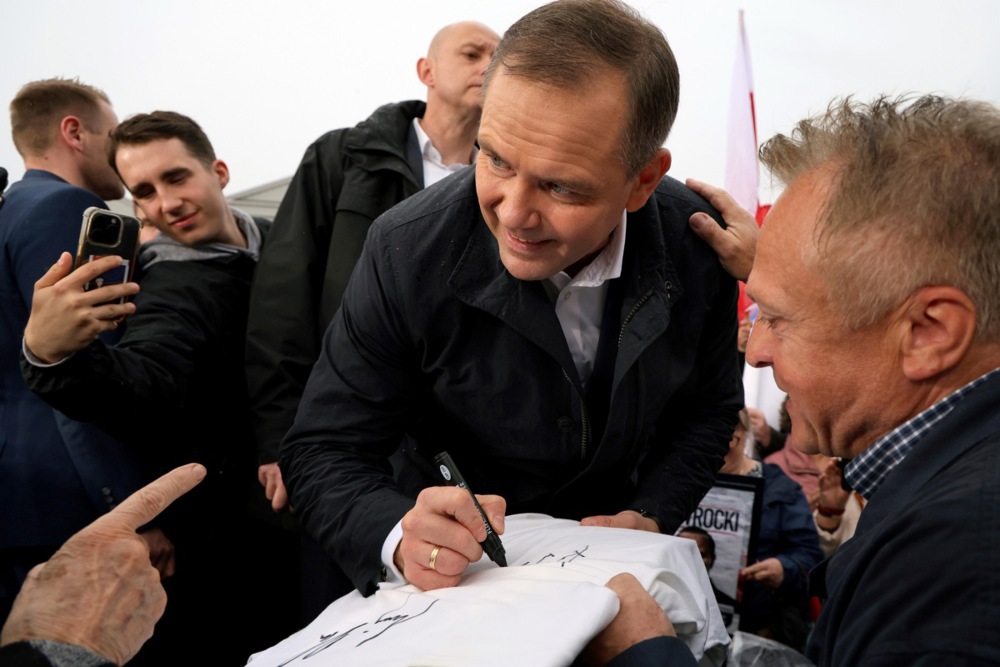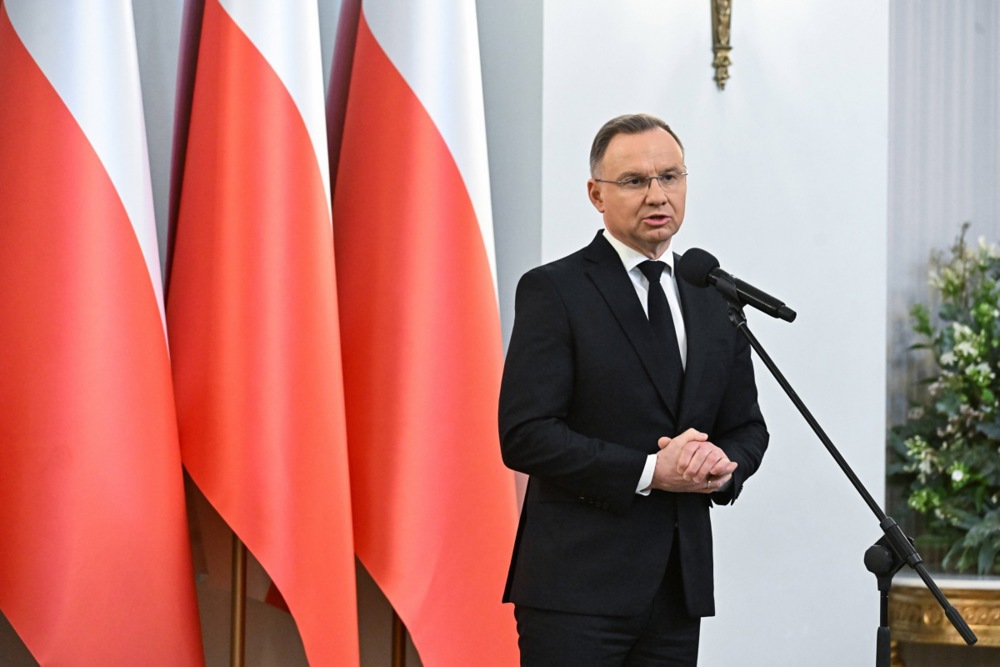Poland’s new President, Karol Nawrocki, has decided to veto legislation backed by the government that would have loosened the restrictions on the construction of wind turbines and frozen electricity prices.
On August 21, he vetoed a bill that would have liberalised rules for onshore wind farm construction and also contained provisions extending a freeze on household electricity prices until the end of 2025.
The ruling centre-left government led by Prime Minister Donald Tusk had forced the legislation through parliament as a challenge to the new President because it linked the liberalisation of regulations on the location of wind turbines with the clamp on electricity prices that the opposition Conservatives (PiS)-backed Nawrocki had advocated during his presidential election campaign.
Nawrocki said his decision resulted from public opposition to loosening wind farm restrictions, including reducing the minimum distance from residential buildings from the existing 700 metres to 500 metres and scrapping the so-called 10H rule introduced in 2016.
The 10H rule mandated a minimum distance of 10 times the wind turbine’s height from any residential building.
“People don’t want 150-metre turbines near their homes,” the President said.
Nawrocki argued that lowering energy costs required “moving away from the EU’s Green Deal” and the bloc’s emissions trading system (ETS) rather than building more wind farms.
During his election campaign, Nawrocki criticised European Union climate policy and promised to maintain coal mining, despite its high costs. He also pledged to cut household electricity prices by one-third within his first 100 days and to call a referendum on leaving the EU’s Green Deal.
It was the first veto of Nawrocki’s presidency since its start on August 6 with him announcing at a news conference that he would instead submit his own bill to extend the price freeze.
“The so-called wind farm bill is a form of blackmail by the parliamentary majority and the government,” Nawrocki told reporters. “This legislation is about wind turbines, not about lowering electricity prices.”
Nawrocki said his office would submit a separate proposal that directly prolonged the clamp on electricity prices for households into the last quarter of this year and which was identical to the one proposed by the government.
“We have not changed a single comma in the provision on freezing electricity prices,” he said, adding that he hoped parliament would take up the proposal in September and that he would be ready to sign it immediately on its passage.
The current price freeze, which caps household electricity prices at €120 per megawatt hour, expires in September.
Poland’s energy mix is still dominated by coal, which accounts for more than 50 per cent of generated power but the renewables sector has grown steadily, with its share of the mix now above 30 per cent.
Nawrocki has convened a meeting of the Cabinet Council for August 27, a prerogative for the President to call his ministers to meet to consider business brought by the head of state, at which he will discuss with the government large-scale infrastructural projects and the state of public finances.
The Cabinet Council is a consultative body that does not take government decisions but allows the head of state to discuss with the government issues the President believes are priority.





